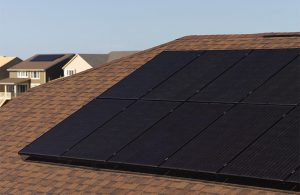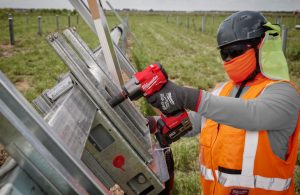Is “Not-Made-In-China” a Safer Bet for Your Solar Battery?

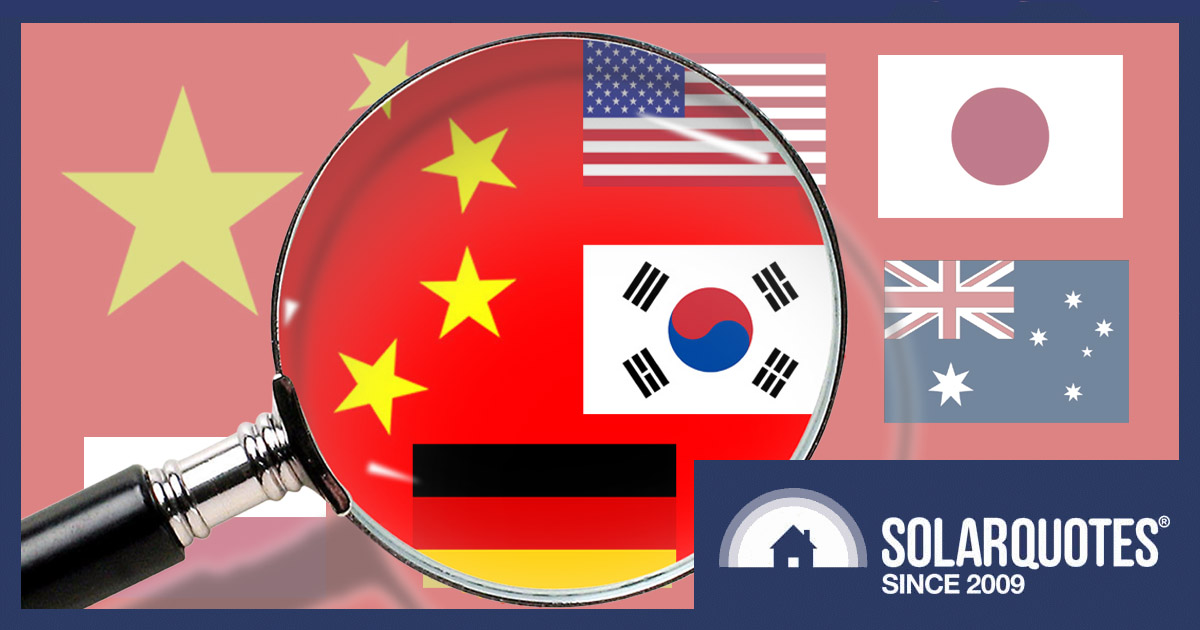
Is ‘Made in China’ a deal-breaker for you when it comes to solar batteries?
You’re not alone. Judging by the support tickets coming into SolarQuotes, a growing number of Aussies want to dodge Chinese-made batteries, and it’s not just about quality anymore—it’s about national security and geopolitics.
So, is this caution warranted? Let’s unpack the reasons behind the distrust, the risks tied to high-tech connectivity, and the alternative options that won’t bear a ‘Made in China’ stamp.
The Rationality of Avoiding Chinese Batteries
What’s fuelling the Aussie reluctance to go for Chinese batteries? Let’s dive into the nitty-gritty.
Manufacturing Practices And Quality Control
China is a global manufacturing powerhouse, making vast quantities of products at competitive prices. Some battery buyers are worried that Chinese manufacturers might prioritise speed and cost-efficiency over attention to detail.
Six of the world’s ten largest lithium-ion battery companies are in China. They produced a whopping 79 percent of all lithium-ion batteries that entered the global market in 2021 and are projected to remain the leading country in lithium-ion battery manufacturing in 2025.
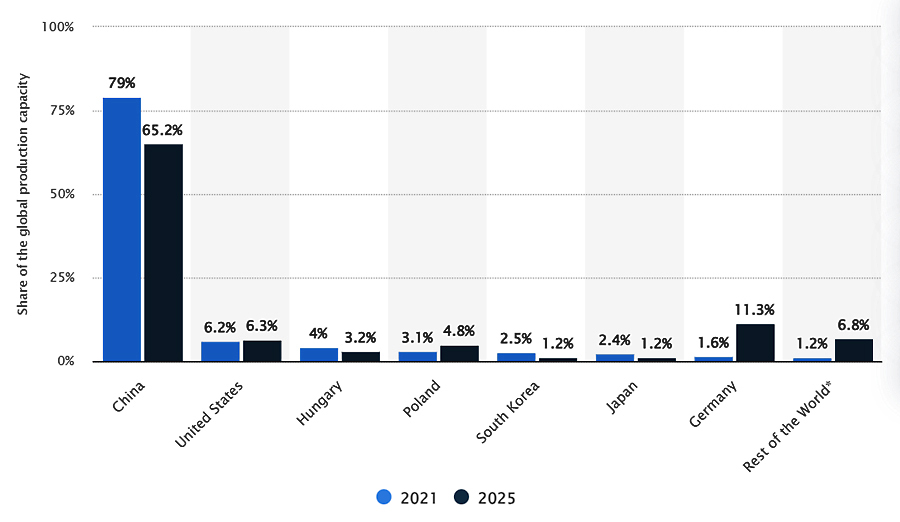
Share of the global lithium-ion battery manufacturing capacity in 2021 with a forecast for 2025, by country. Image: Statista
Many folks prefer to play it safe by choosing batteries from countries perceived to have top-notch manufacturing and strict quality checks—think Germany. But let’s be clear: problems aren’t unique to Chinese products.
Cultural Stigma
In Australia, perceptions related to cultural backgrounds have occasionally cast shadows on products and manufacturing. Such perceptions, often influenced by specific political persuasions, have led to concerns associated with products from certain regions. This broader context has contributed to the scrutiny faced by Chinese-made solar batteries, which goes beyond product quality.
Geopolitical Factors
Cultural stereotypes sometimes taint our view of products and their origins. Often shaped by political leanings, these views create extra suspicion around goods from particular regions. This adds another layer to Aussies’ scepticism towards Chinese solar batteries—it’s not just about the build quality.
Connectivity Concerns
Some Chinese1 batteries can be monitored and managed from the manufacturer’s headquarters. This level of control can raise concerns about data privacy and external influence over the battery’s functionality.
Cyber Security
The convenience of connectivity comes with its own set of security risks. In light of the wave of cybersecurity breaches Australia has seen, it’s no wonder people are concerned. Hackers aren’t just bored kids or criminal organizations. State actors can also exploit software, network, or device vulnerabilities to gain unauthorised access. Although this threat could come from anywhere, many Australians view China as a high cybersecurity risk.
Until now, no cybersecurity attacks have been reported on DERs (distributed energy resources) in any country. That’s not to say it won’t happen. Traditional energy resources, including power grids, have been successfully attacked and shut down in the past.
In 2015 and 2016, Ukraine experienced two separate cyberattacks that caused power outages. The attackers used malware to access the power distribution systems and remotely manipulate circuit breakers, leading to widespread blackouts.
In Australia, the Conti ransomware group targeted the corporate ICT network of Queensland Government-owned electricity generator CS Energy in November 2021. CS Energy became aware of a ransomware incident and immediately severed the external internet connection to its corporate network. Energy supplies were not affected.
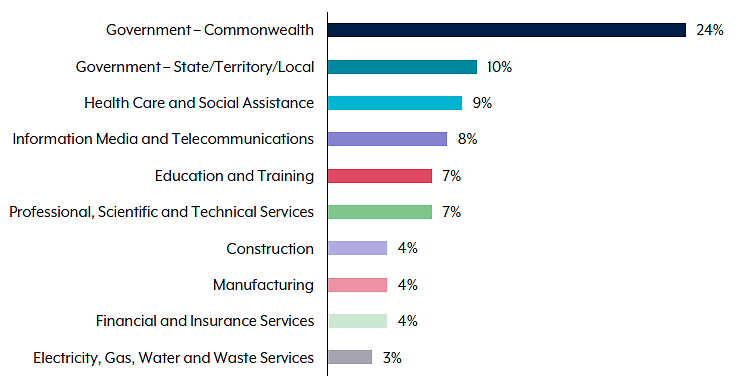
The energy sector rated low for cyber security incidents to which the ACSC responded in financial year 2021–22. Image: Australian Cyber Security Centre
Mitigating Risk
If you think that owning a Chinese-made solar battery system is a risky proposition, there are several things you could do to mitigate any perceived risk.
Don’t Buy One
Firstly, stating the obvious, although China produces the lion’s share, there are many other options, including Australian-made. I’ll leave a list further on in the article.
Research and Due Diligence
If you’re concerned about manufacturing standards and quality control, not all Chinese products suffer from quality issues, and many Chinese manufacturers adhere to high production standards. When researching different battery manufacturers, including Chinese ones, look for brands with a track record of quality, good customer reviews and those recommended by expert installers with a long history of using Chinese brands.
Disconnect From The Internet
You have a Chinese-made battery system, but you’re more worried about cybersecurity than quality issues? Simply disconnect from the internet. Your battery will still function, albeit probably not as well. By isolating your system from online connectivity, you reduce the potential for cyber threats. However, there are significant trade-offs.
Limited Monitoring: Being offline means sacrificing the convenience of remote monitoring and control. Also, some features may rely on internet connectivity.
Delayed Updates: Internet disconnection could prevent you from receiving important software updates that might enhance the performance and, ironically, the security of your battery system.
Troubleshooting: Manufacturers often use internet connectivity to remotely diagnose issues and provide technical support.
Warranty Validity: Some manufacturers stipulate that the system must be connected to the internet to maintain warranty coverage.
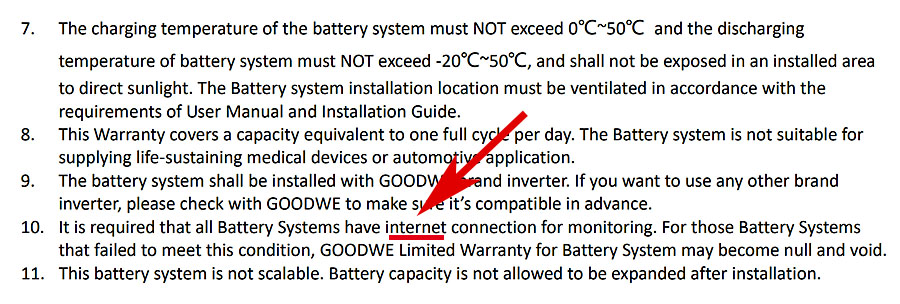
Goodwe warranty preconditions. No. 10 states – It is required that all battery systems have an internet connection for monitoring. For those battery systems that failed to meet this condition. GOODWE Limited Warranty for battery system may become null and void. Image: Goodwe
Secure Your Local Network
So, if you’ve accepted that internet connectivity is part and parcel of owning a modern device, you can do some simple things to secure your local network. These include setting strong passwords, two-factor authentication, and configuring your router’s firewall. Here’s an article that goes deeper into this topic – How To Protect Your Solar Inverter From Hackers.
Manufacturer’s Security Guidelines
It’s in the manufacturer’s interest to keep your battery secure from malicious cyber attacks. They quite often have a document that addresses best practices for cybersecurity. In addition to securing your local network, some systems can be physically locked to prevent access locally or remotely. If the technical jargon to set this up is too much for the average Joe, your installer would gladly help.
Yes, even Chinese companies are being proactive when it comes to security. In May 2021, a Chinese inverter and battery company, Sungrow, became the first company in the renewable energy industry to gain IEC 62443-4-1 CB certification. IEC 62443 is an international series of standards that address cybersecurity for operational technology in automation and control systems.
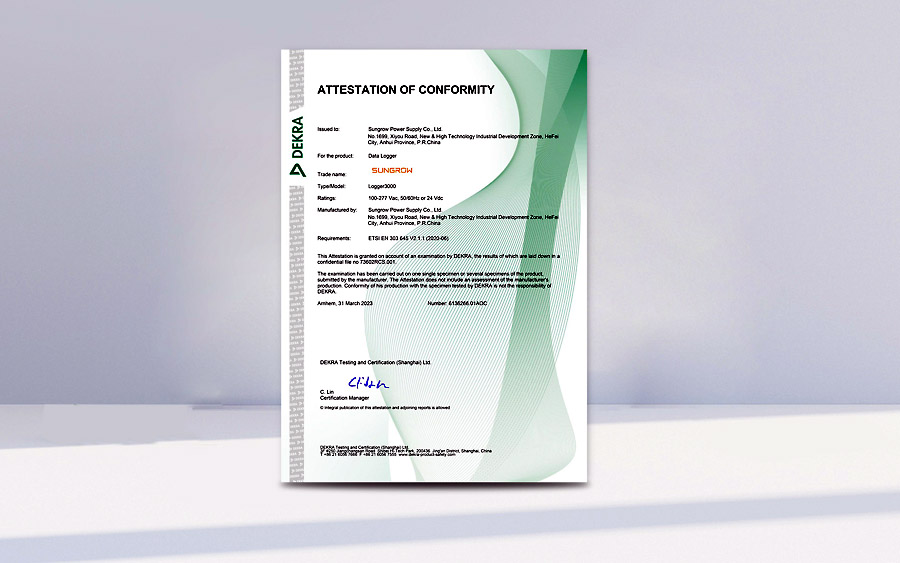
Sungrow IEC 62443 certification promo pic. Image: Sungrow
The Powers That Be Have Our Backs
That’s not a typo! Our friends in Canberra are very worried and doing their utmost to keep our energy assets safe from cyber attacks. The Australian Energy Sector Cyber Security Framework (AESCSF) program assesses cyber security across Australia’s energy sector, particularly critical infrastructure. In 2021, the program was extended to Australian Energy Market Operator (AEMO) electricity grids and markets.
Renewable energy assets such as home rooftop solar/batteries are not considered ‘critical infrastructure assets’ under the Security of Critical Infrastructure Act 2018 (SoCI Act). On the flip side, owners of these small systems don’t have to comply with the onerous regulations set by the legislation. This is an evolving space that is being scrutinized very carefully by stakeholders.
Of course, China-baiting is a predictable go-to used by pollies to strike fear into the heart of any undecided voter. Lately, there’s been a lot of hot air on this subject. The reality is that it’s not just Chinese products that have been vulnerable to hackers.
Which Batteries Are Vulnerable?
The ‘Internet of Things’ (IoT) is a term used to describe the interconnection via the internet of computing devices embedded in everyday objects, enabling them to send and receive data. Any connected device embedded in the IoT, including a solar battery, is a potential target for malicious software or other type of attack.
There is no reason to believe that a solar battery made in China is any more vulnerable to a cyber security breach than one made in the USA, or anywhere else. What’s important is that the manufacturer has addressed any potential security flaws or loopholes.

Our collective devices, known as the IoT (Internet of Things) brings us convenience at the price of cyber vulnerability. Image: Data Science
Solar Batteries Not Made In China
But just in case you’re not convinced and would prefer to have a ripper beaut Aussie-made, or precision German, Korean, or whatever; here’s a list of non-Chinese solar batteries extracted from SolarQuotes’ Solar Battery Comparison Table. All batteries listed have specifications, prices, and links to more information, including customer reviews. Knock yourself out:
| Battery | Company HQ | Made In |
|---|---|---|
| Energizer Homepower | USA | USA |
| Enphase IQ Battery 5P | USA | USA |
| FIMER PowerX | Italy | Italy |
| GenZ 48V 3kWh | Australia | Australia |
| LG Chem RESU | South Korea | South Korea |
| PowerPlus Energy LiFe Series | Australia | Australia |
| Sonnenschein PRO Series | Germany | Germany |
| Zenaji Aeon | Australia | Australia |
| Delta BX | Taiwan | Taiwan |
| Redback Smart Battery | Australia | China |
| Sonnenbatterie | Germany | Australia |
| Tesla Powerwall 2 | USA | USA |
| Eguana Evolve | Canada | Canada |
| Opal Storage | Australia | South Korea |
| QCells Q.HOME CORE | South Korea | South Korea |
| RedEarth Sunrise | Australia | Australia |
| Senec.HOME V3 Hybrid | South Korea | Australia |
| Sunpower Reserve | USA | China |
| VARTA Pulse 6 | Germany | Germany |
Are They REALLY Not Made In China?
Ever heard of vertical integration? It’s when a company owns its whole supply chain. But not all battery makers do this. So, even if a battery is designed and put together in one country, it might still have parts from China. Yep, even the Aussie brands. Check out the table above for more info.
If you’re really that averse to Chinese-made batteries, or any other products for that matter, it will take more than a brief Google search to trace the company’s supply chain. Good luck.
It’s Your Call: China or Not?
The decision to avoid Chinese batteries is a personal one. You may have already made that choice, or perhaps you’re sitting on the fence; in this case, you could take some middle ground by trying to mitigate any perceived risks. Good luck!
Footnotes
- However, the same applies to Tesla Powerwall. ↩


